In this next installment of my visit to the Queen Mary in Long Beach, CA I take you on a tour of the ocean liner’s open decks. It’s here where you can see first-hand that time has not been on the old girl’s side. While from a distance her black hull, white superstructure, and iconic Cunard Red funnels may look well kept, closer inspection of these open-air decks reveal something different.
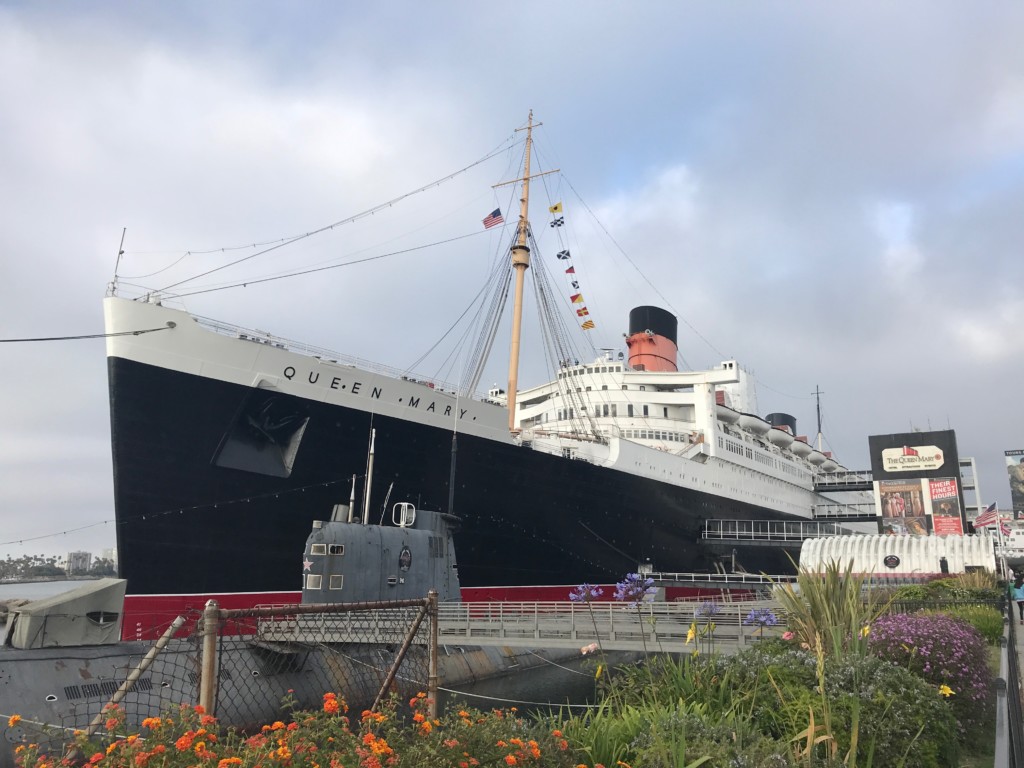
Let’s start at the stern of the ship where you can get a glimpse of other ships docked at the port. During my three days onboard, there were Carnival Cruise Line ships docked here daily:
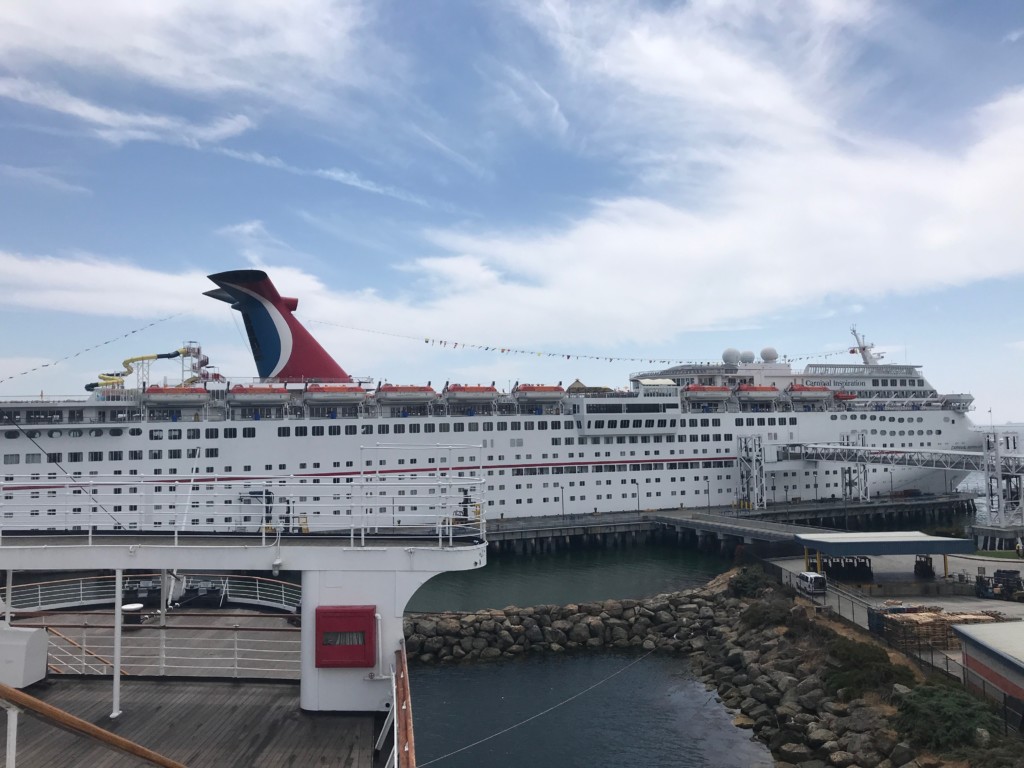
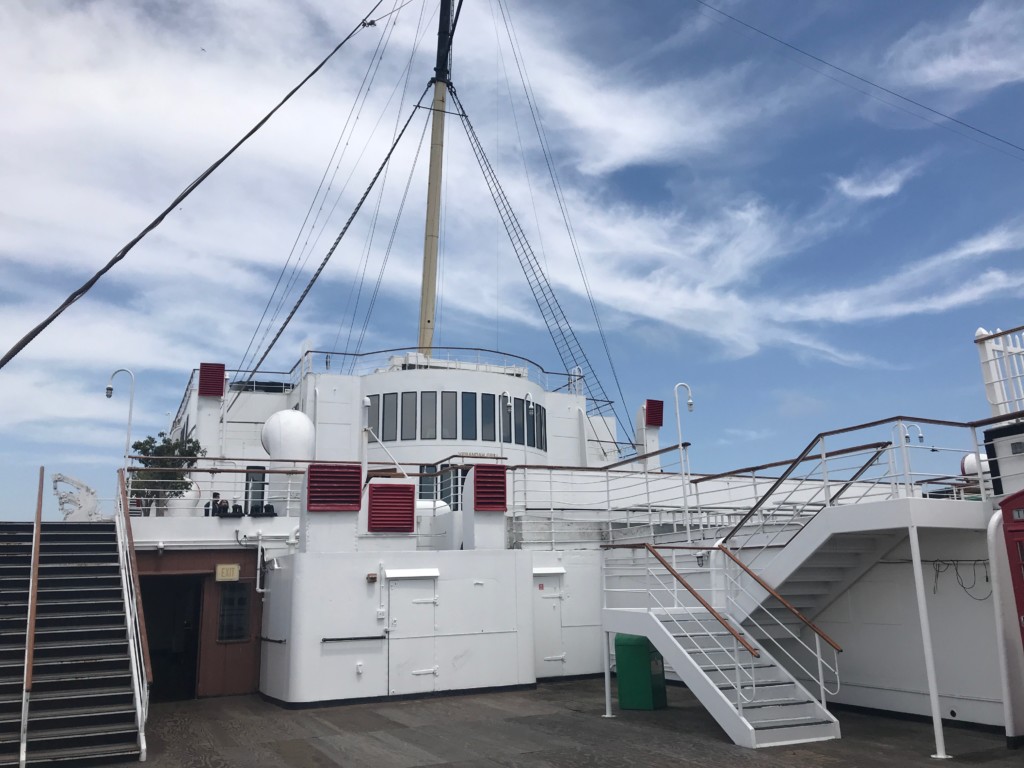
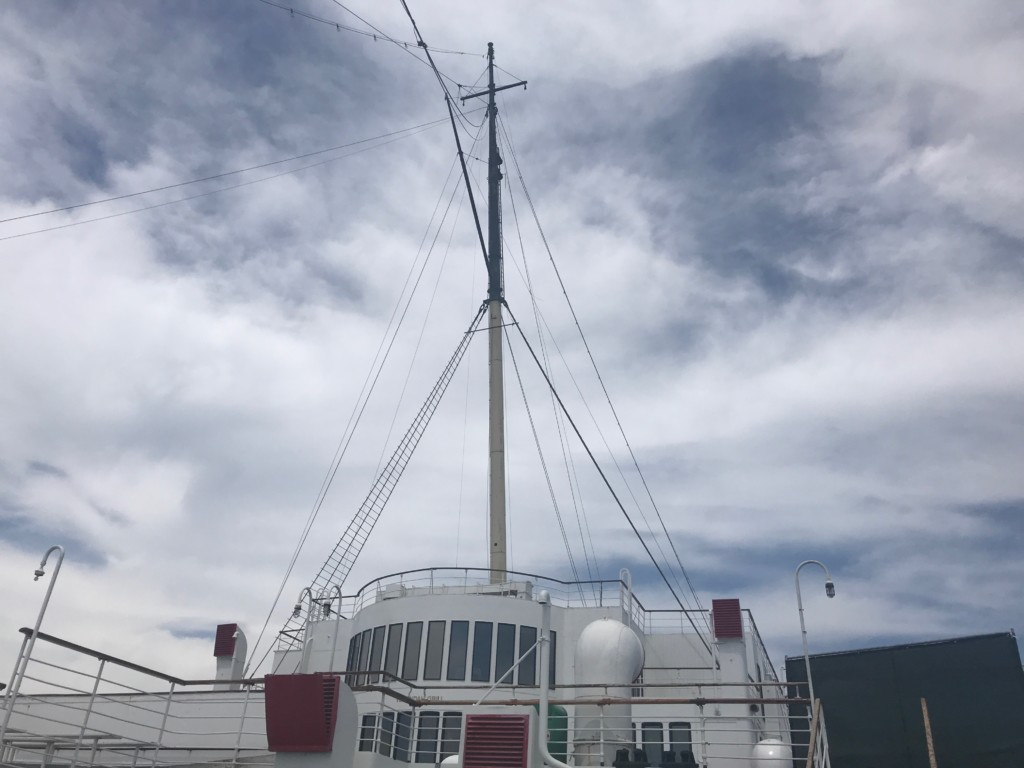
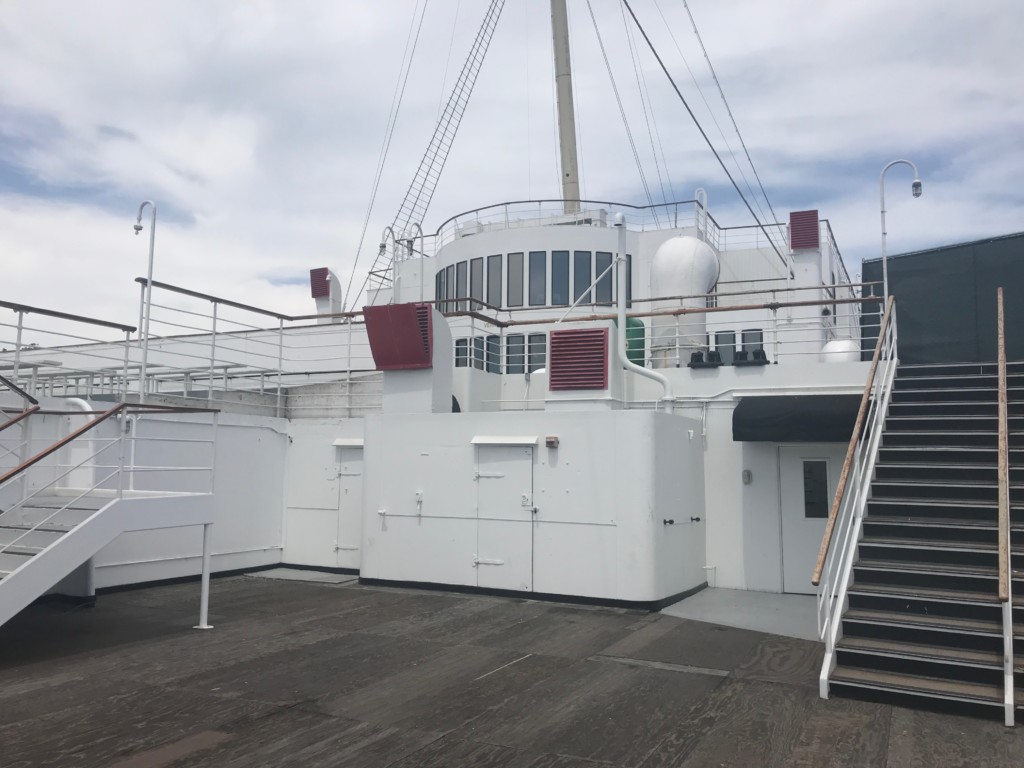
Some of the ship’s original mechanical equipment, such as this Metro-Vick Clyde Wench, has been left on the deck.
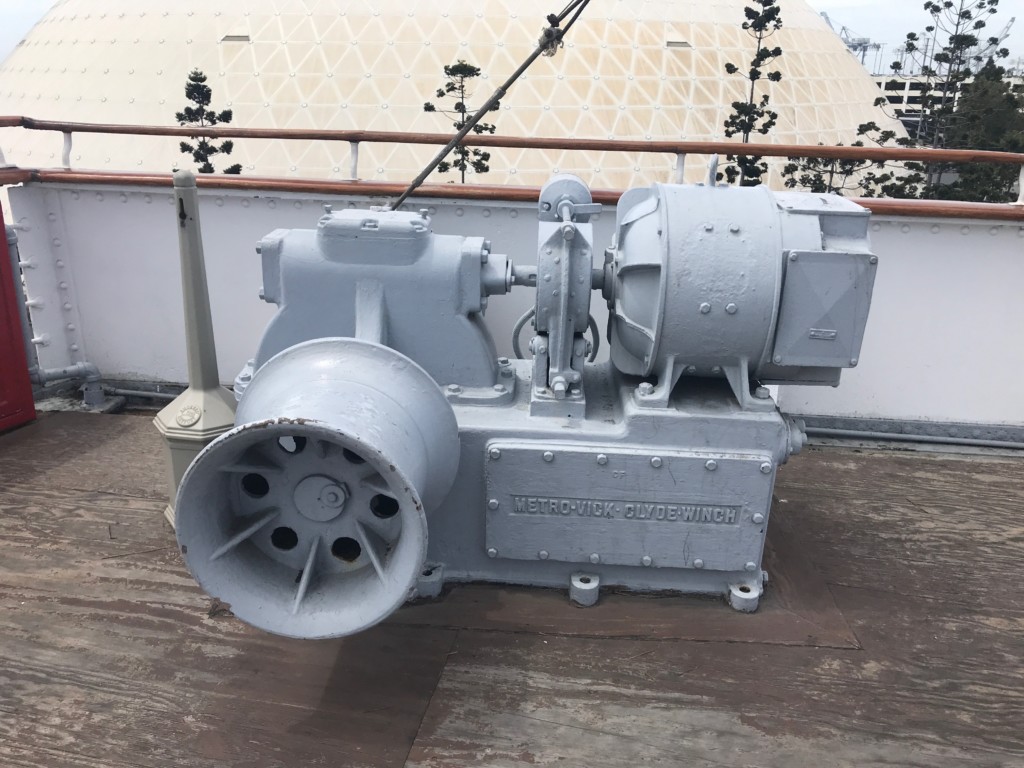
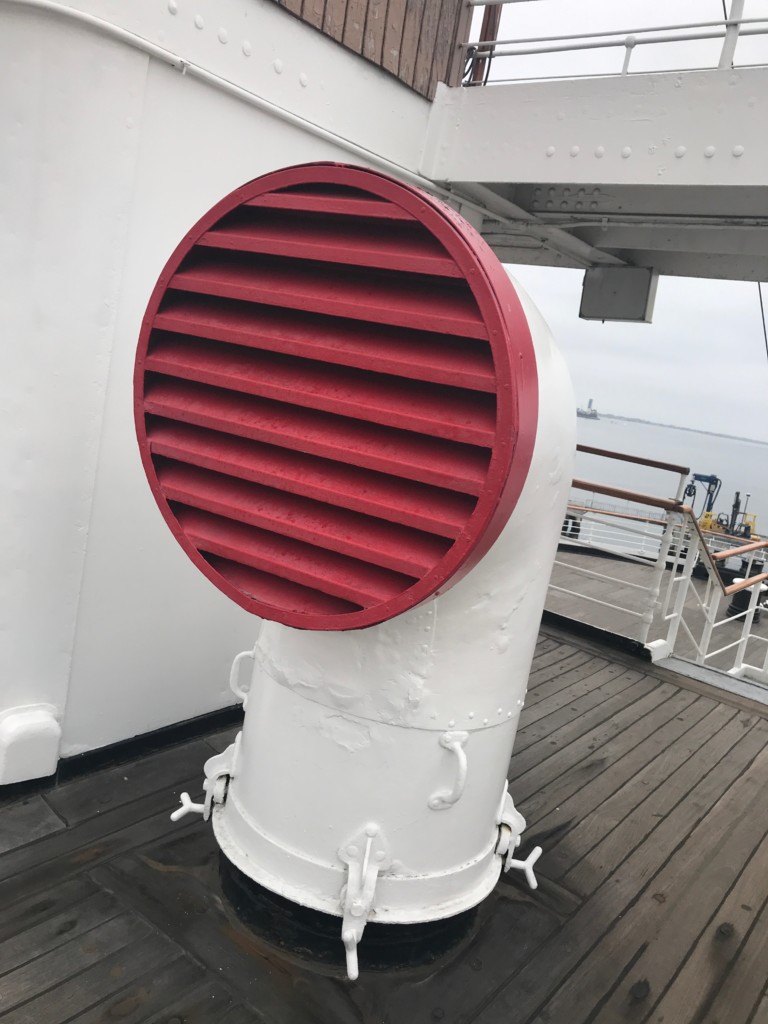
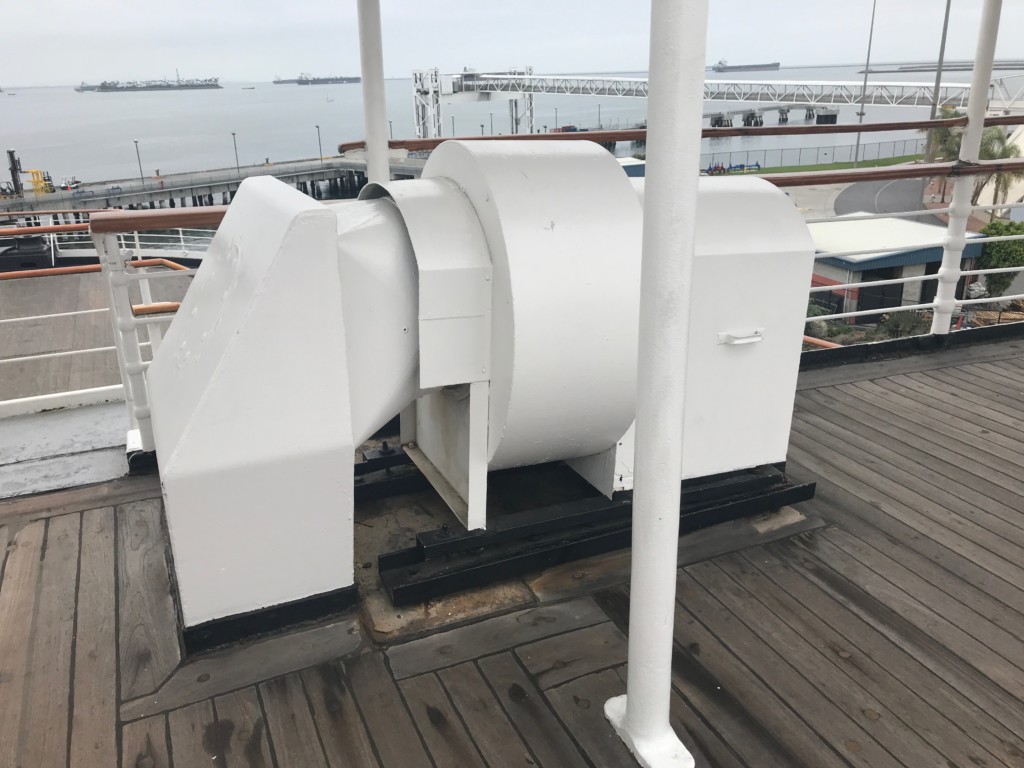
Also on the stern of the ship, is an afterthought… a gazebo that is used for weddings and other events that definitely was not part of the ship’s original construction.
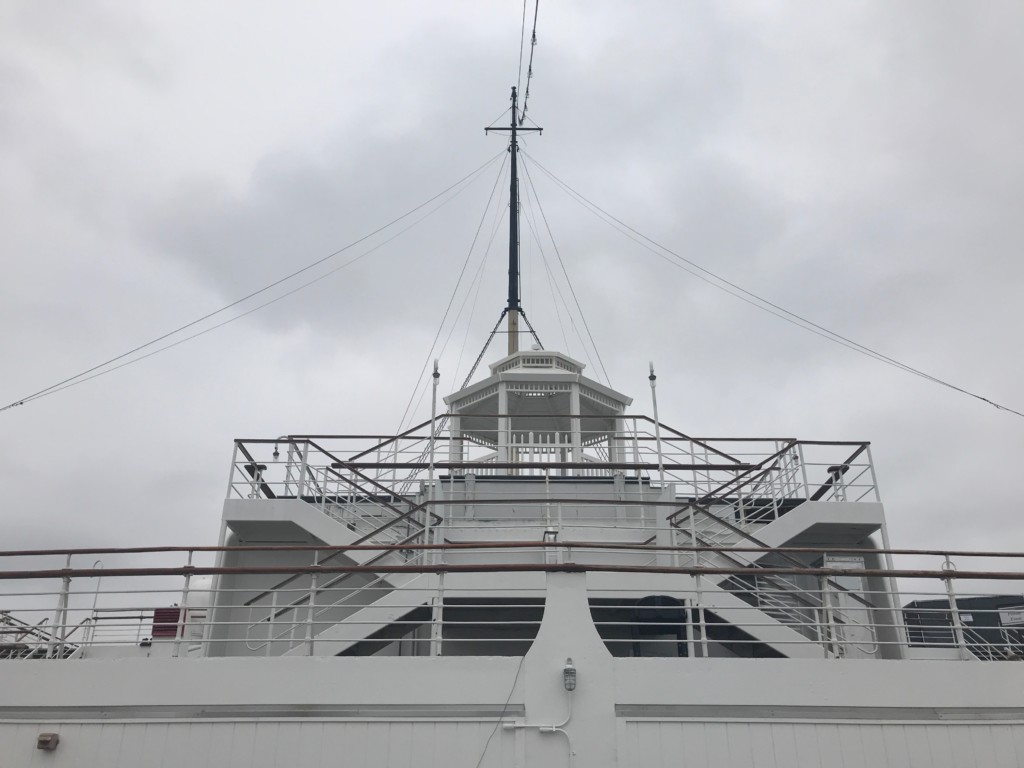
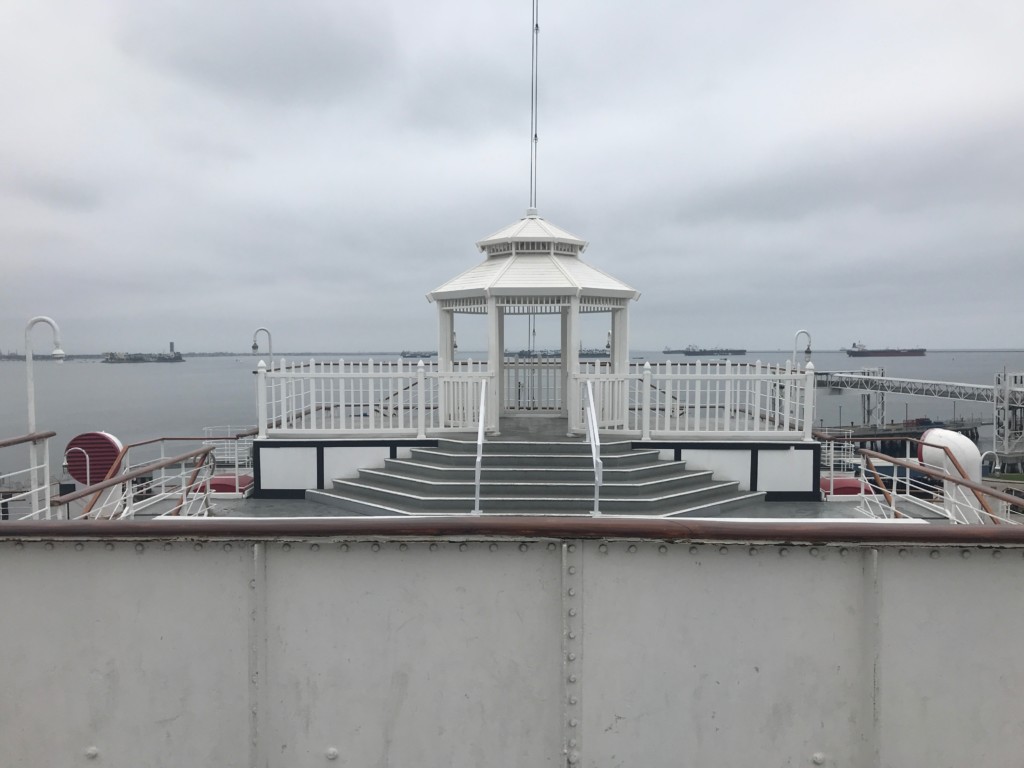
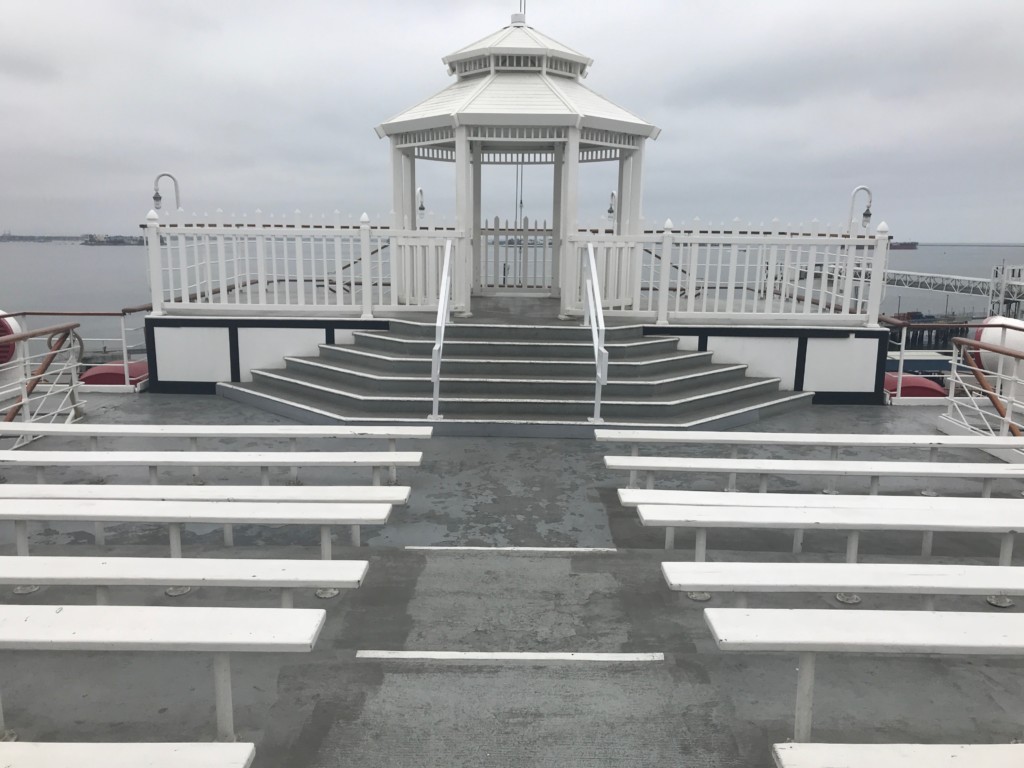
And then there are parts of the stern area that could use some TLC like the underside of these stairs that are covered with rust.
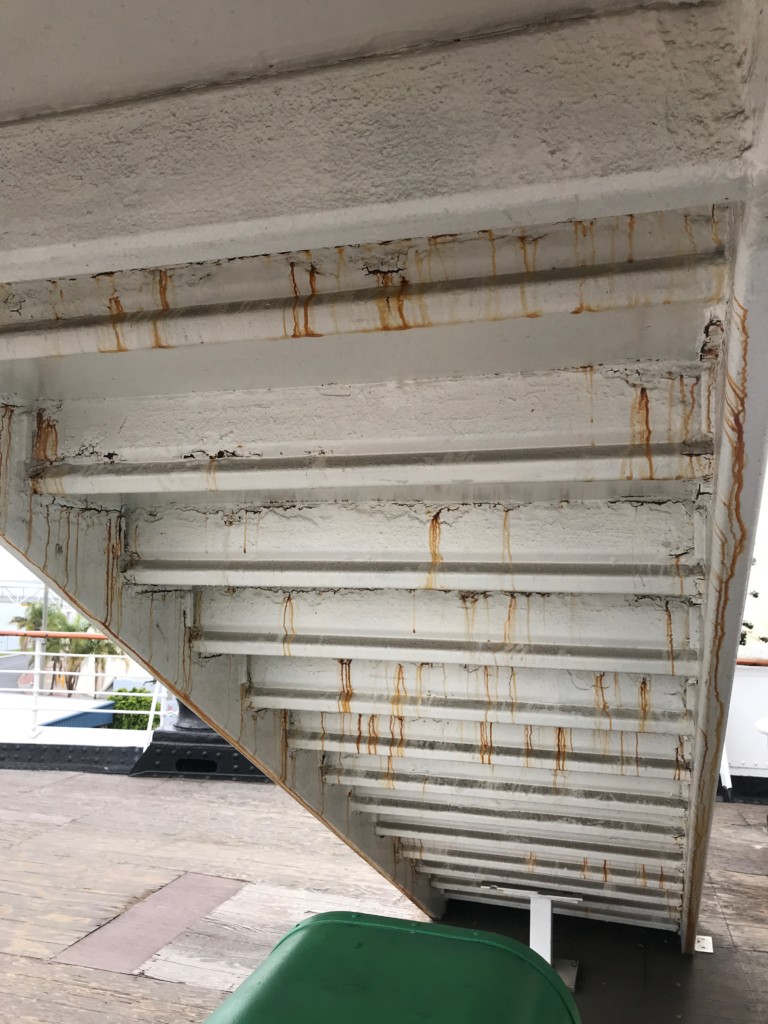
As we make our way from the stern to the port side of the ship on the Sun Deck, you can see railings that have not been kept up and parts of the wood deck that has been “repaired” by simply laying down pieces of plywood.
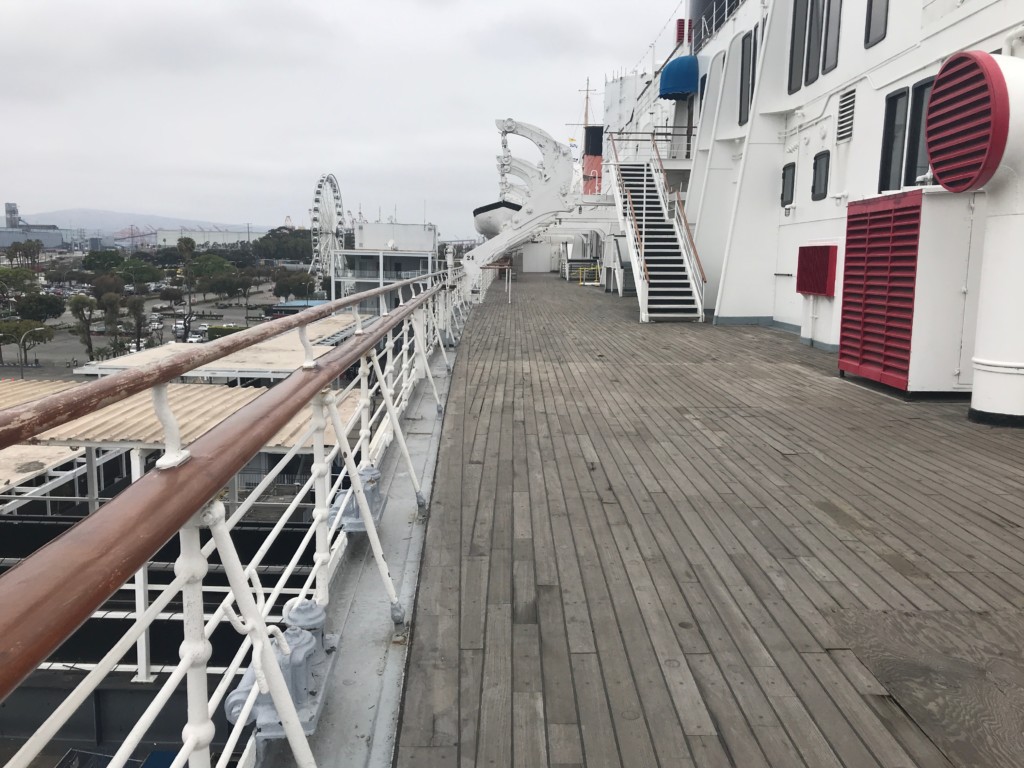
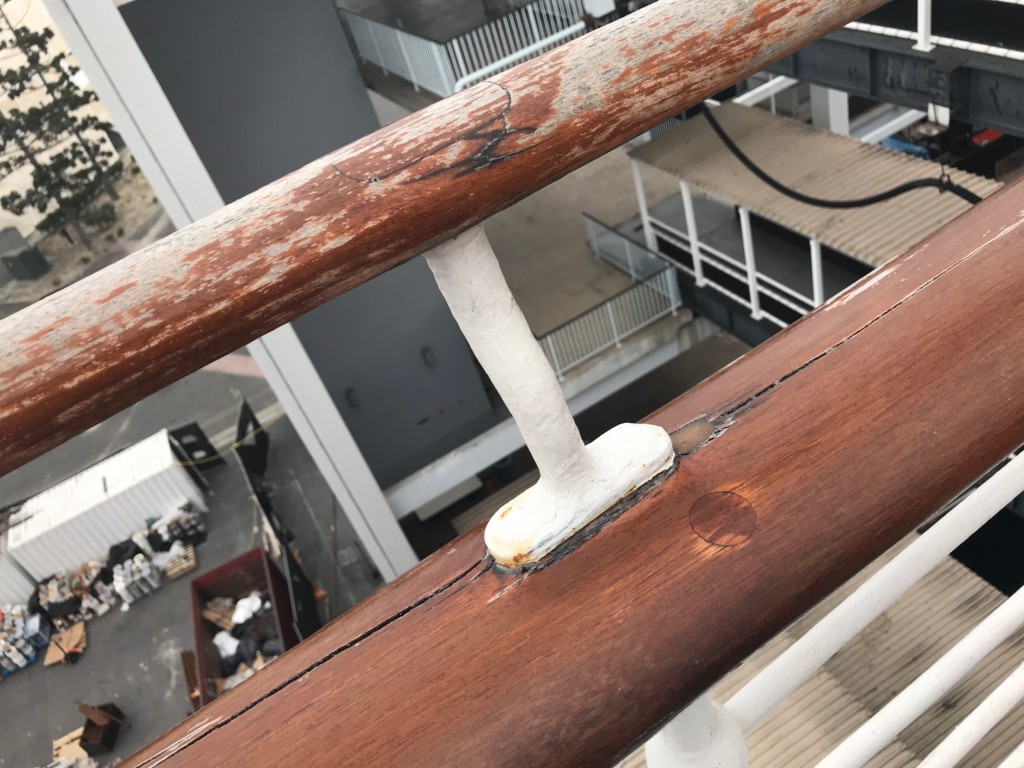
As we continue to make our journey along the port side Sun Deck, we encounter the lifeboat area with a few boats still in their davits while other’s have been removed. Many of the life boats have had their rudders removed and replaced with a plywood replica (gasp!) that is simply a piece of wood that is rotting away and covered with peeling paint.
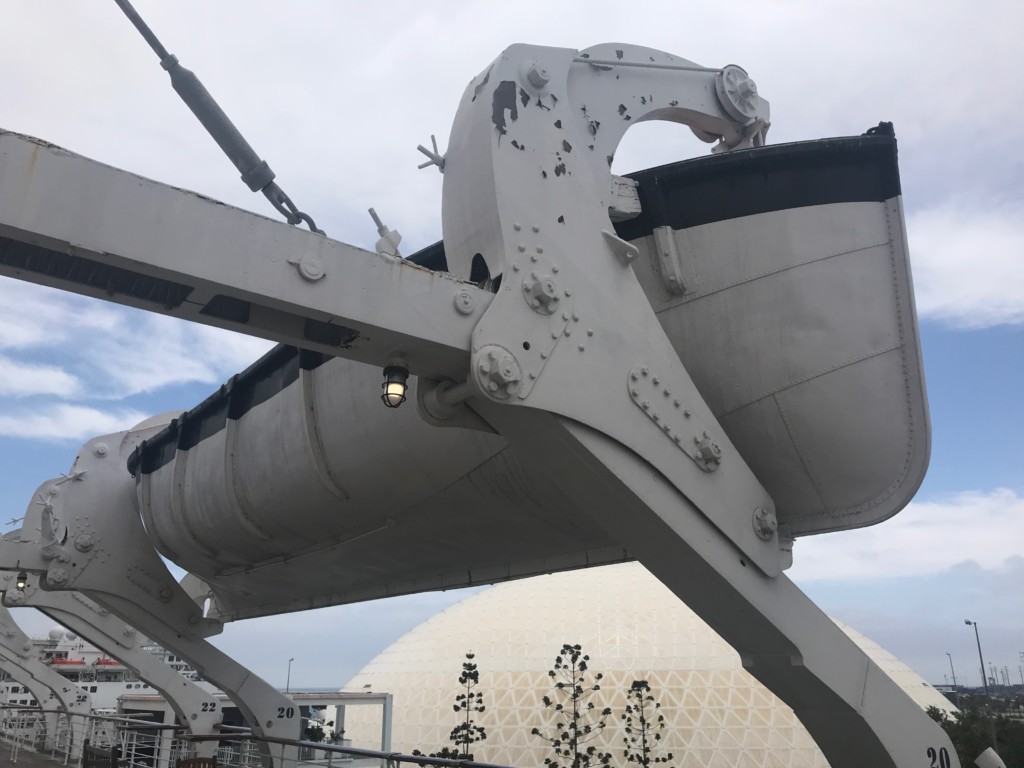
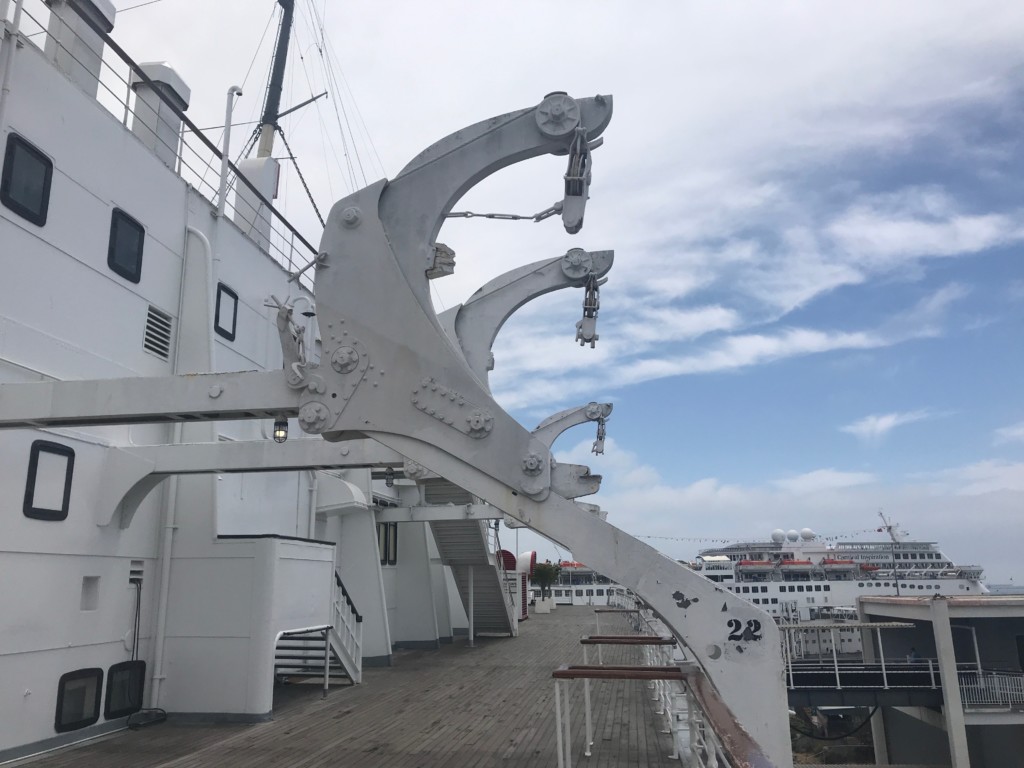
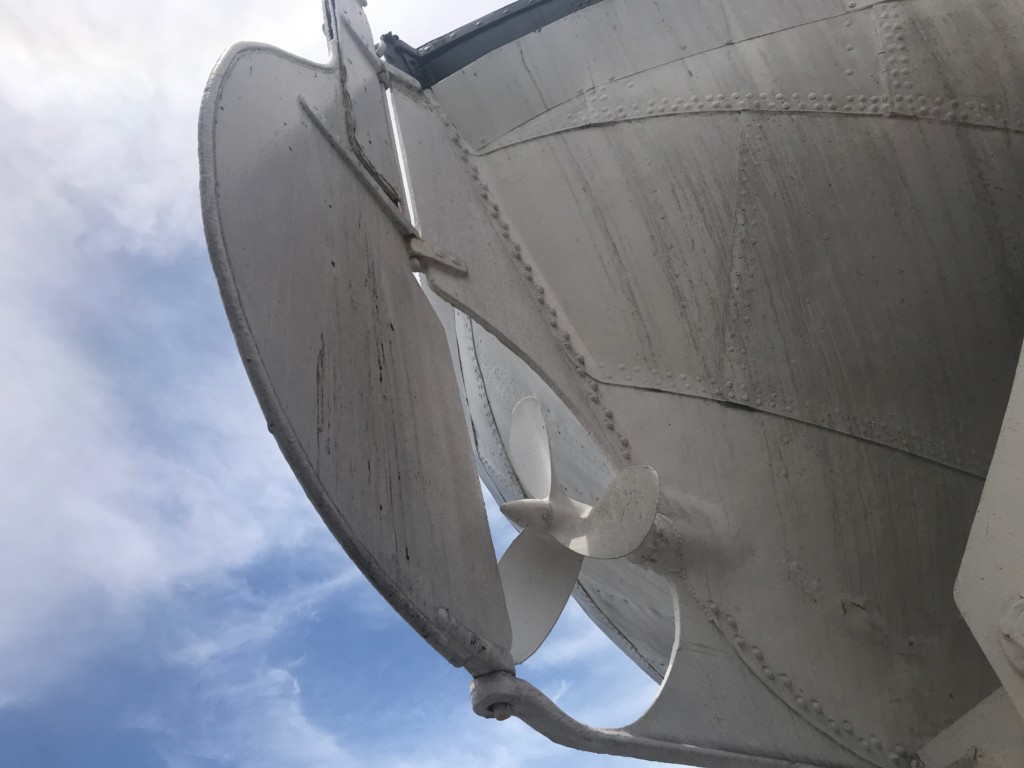
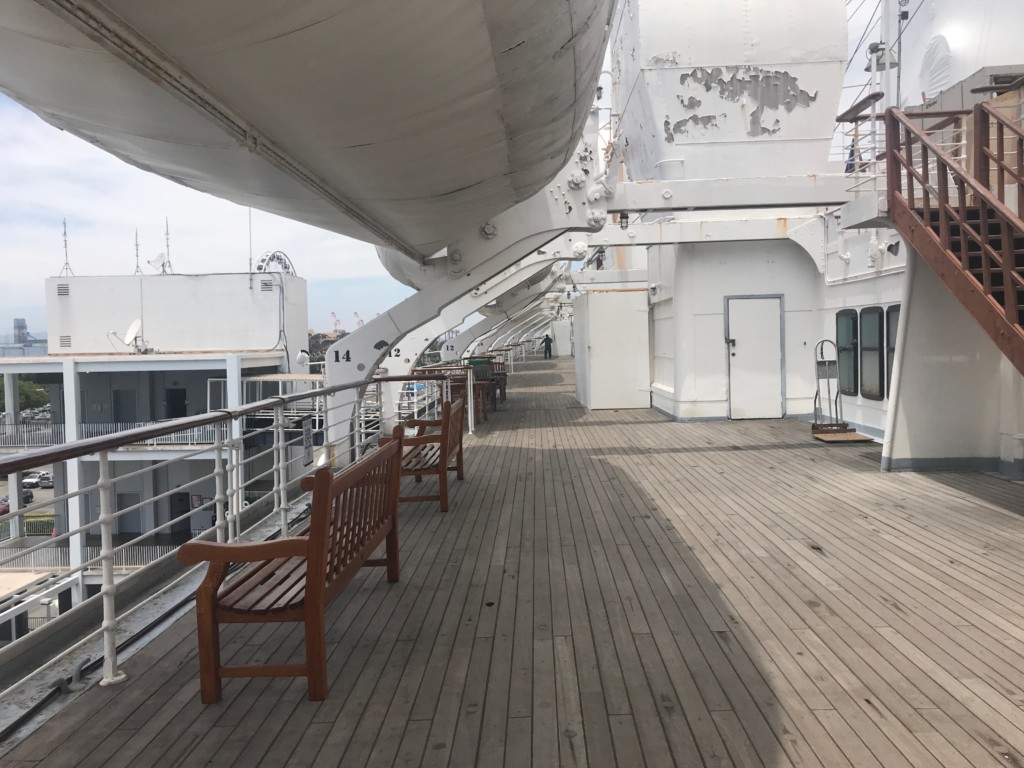
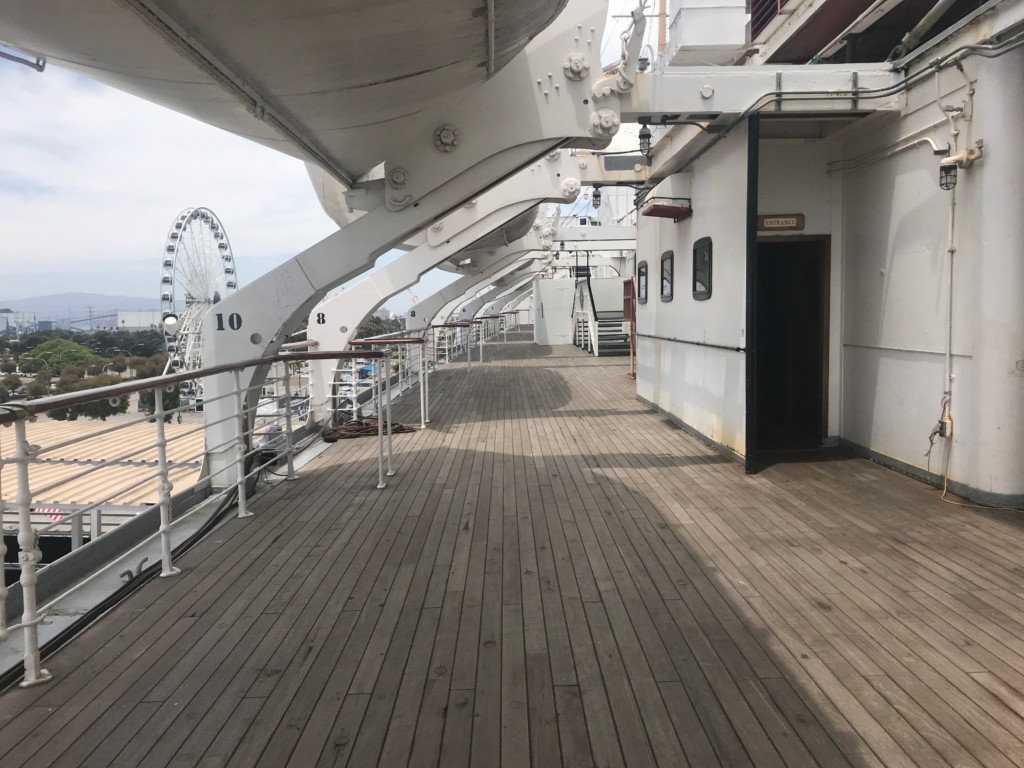
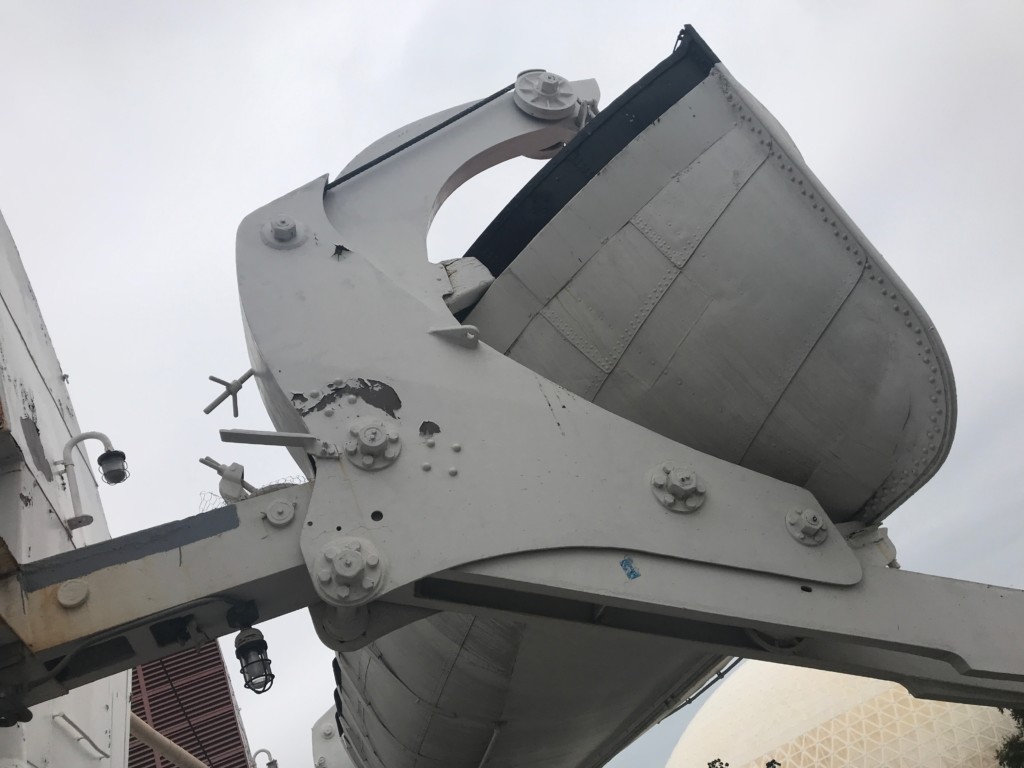
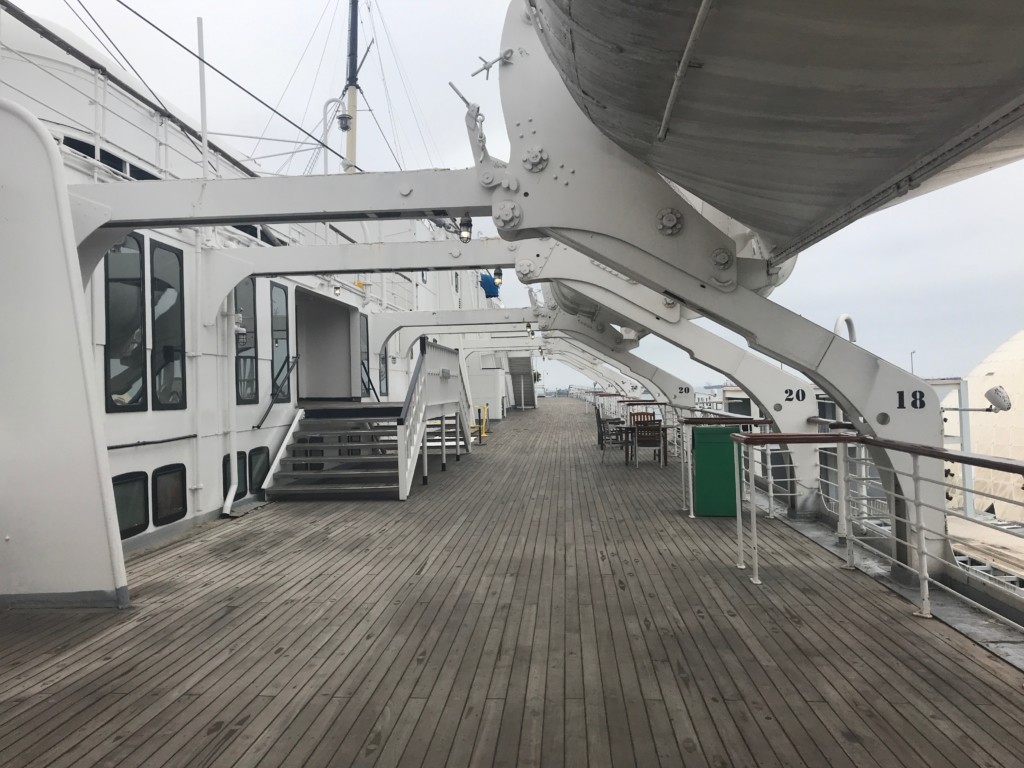
The Sun Deck is the closest I could get to take in a view of the Queen Mary‘s iconic funnels painted in Cunard Red. The Sports Deck, which would have offered a much better view, was closed while construction work was going on.
A side note about the funnels. When the Queen Mary docked in Long Beach in 1968 to begin her conversion to a floating hotel, the funnels were removed in order to remove the equipment that was part of the ship’s power plant. They were subsequently replaced with replicas that historians say are shorter than the originals and lack the rivets that the original ones had.
During my visit, one of the funnels was undergoing some type of maintenance – more than likely a fresh paint job, as the two visible funnels were off in color from one another.
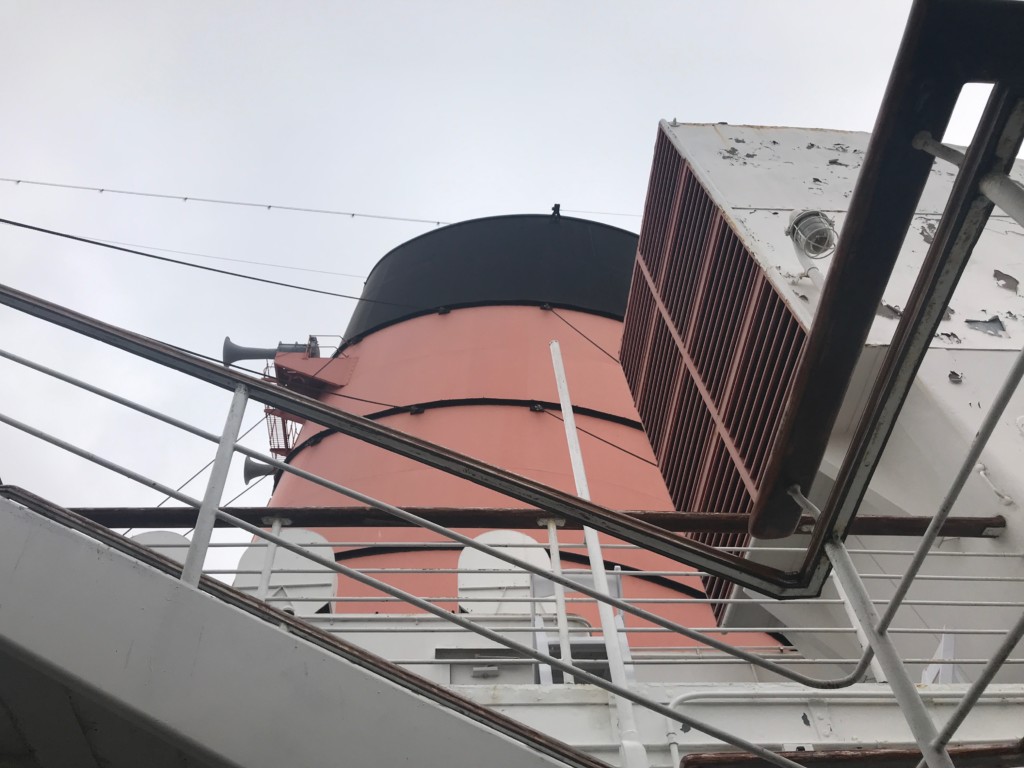
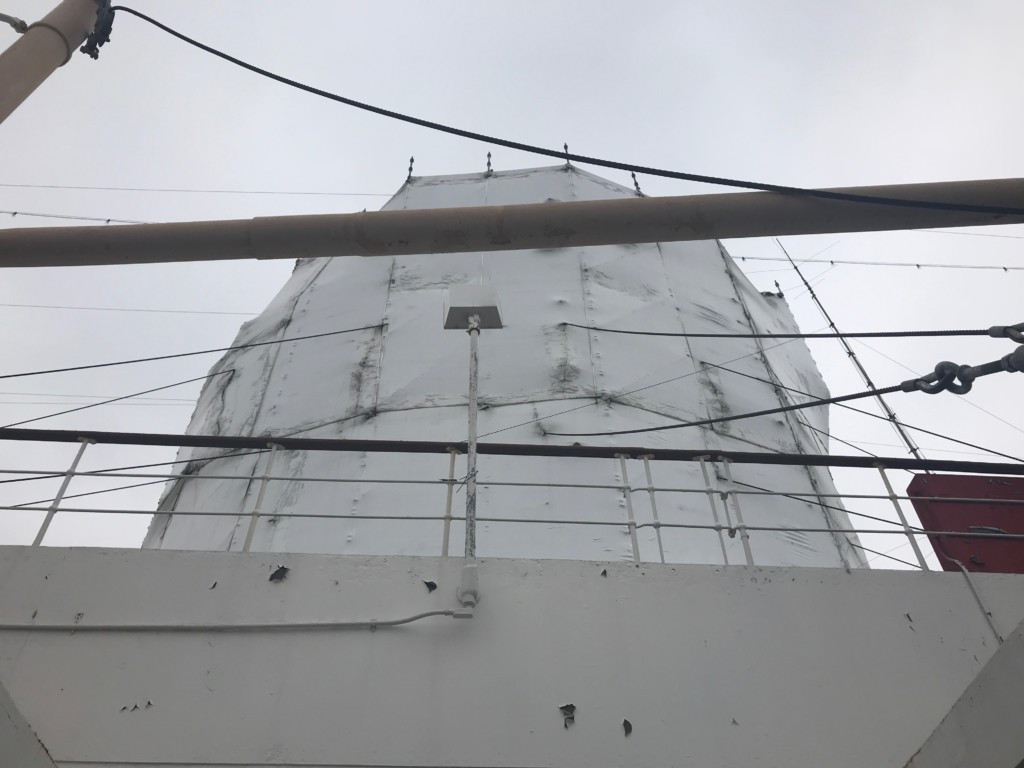
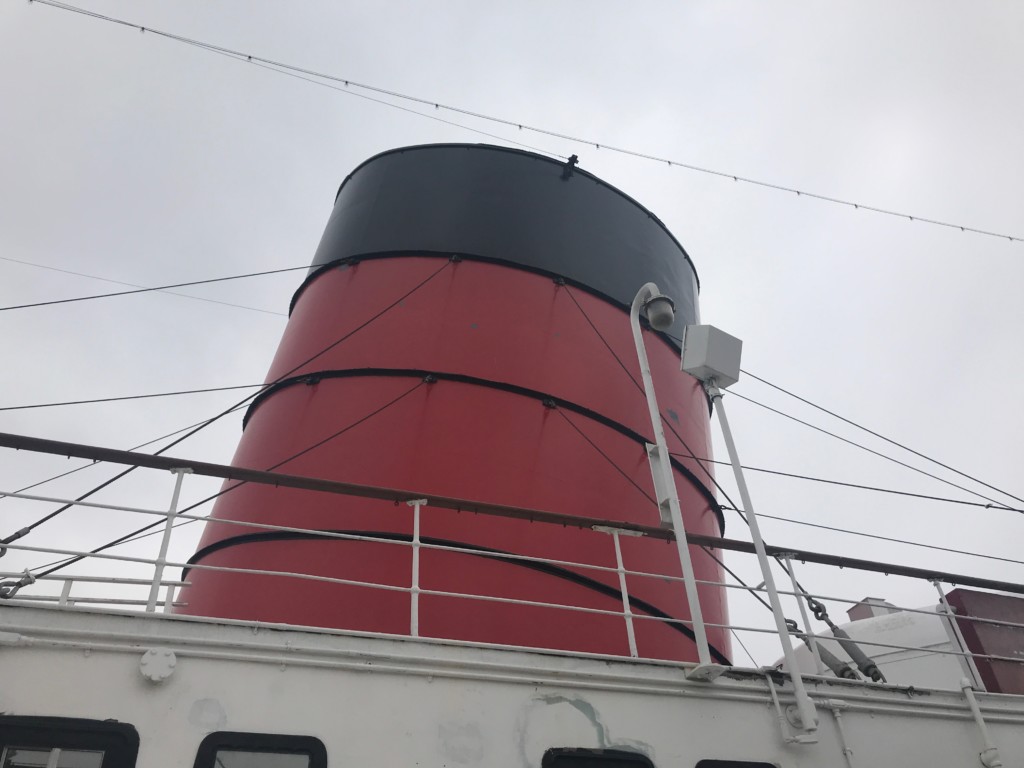
Before moving on, there’s this… a large gap in the structure of the Sports Deck, one deck above, where construction work was going on to facilitate some type of repair.
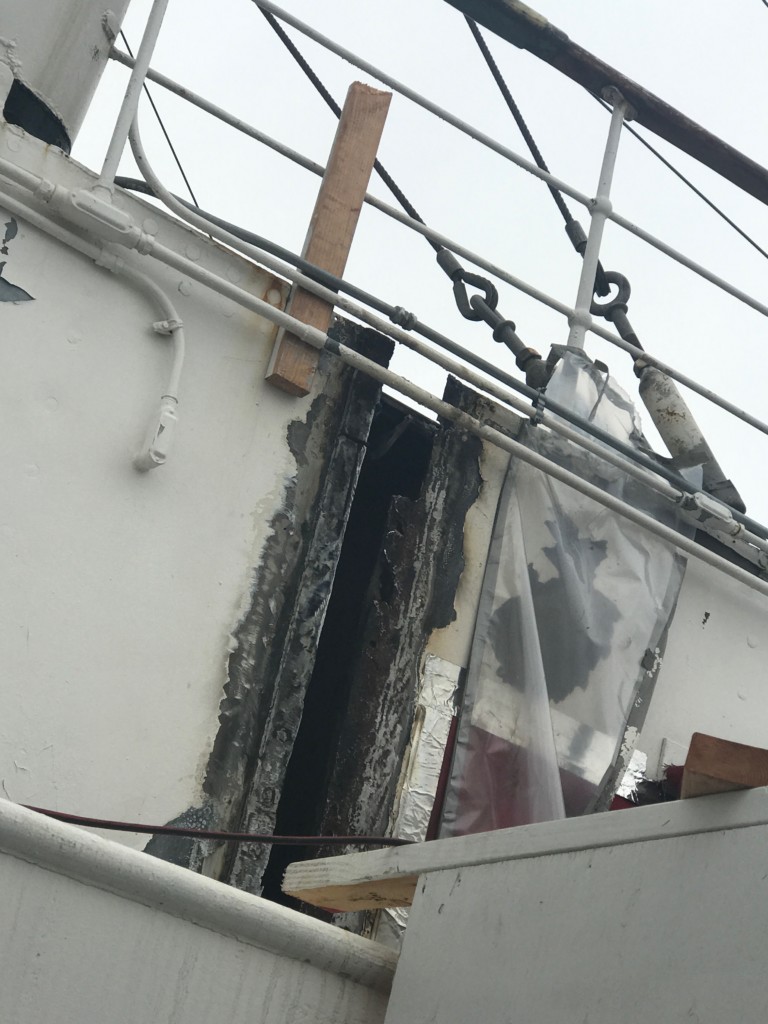
From the port side Sun Deck, we move onto the Bow of the Queen Mary. Part of the bow was inaccessible as workers were doing some maintenance work on the floor.
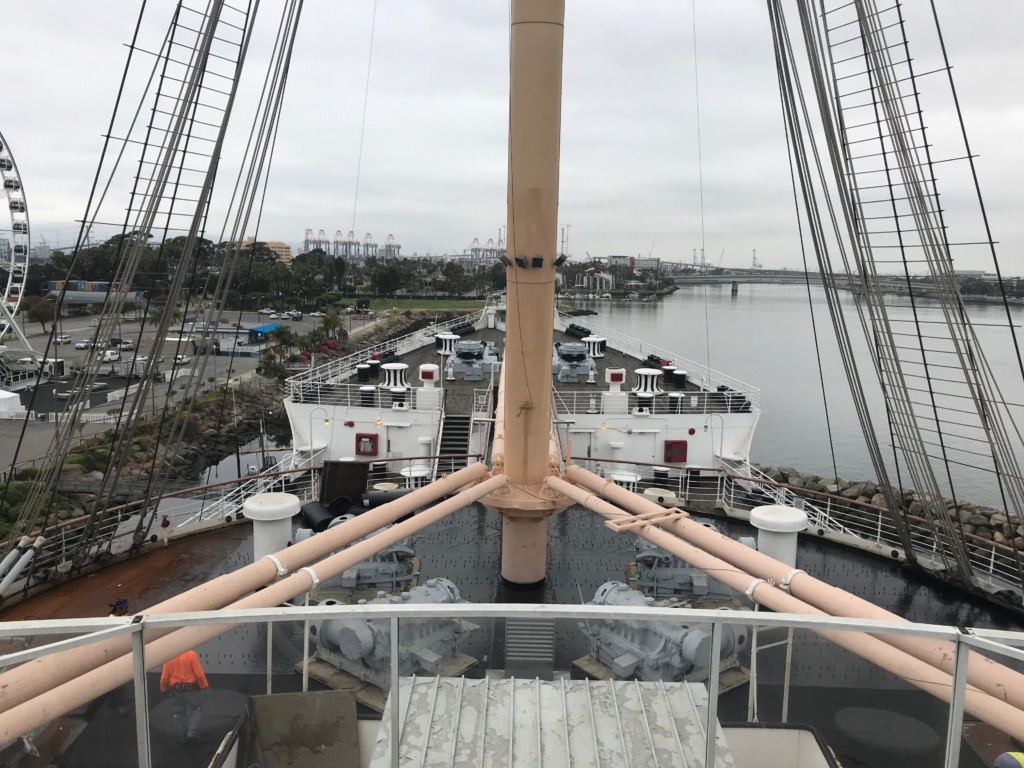
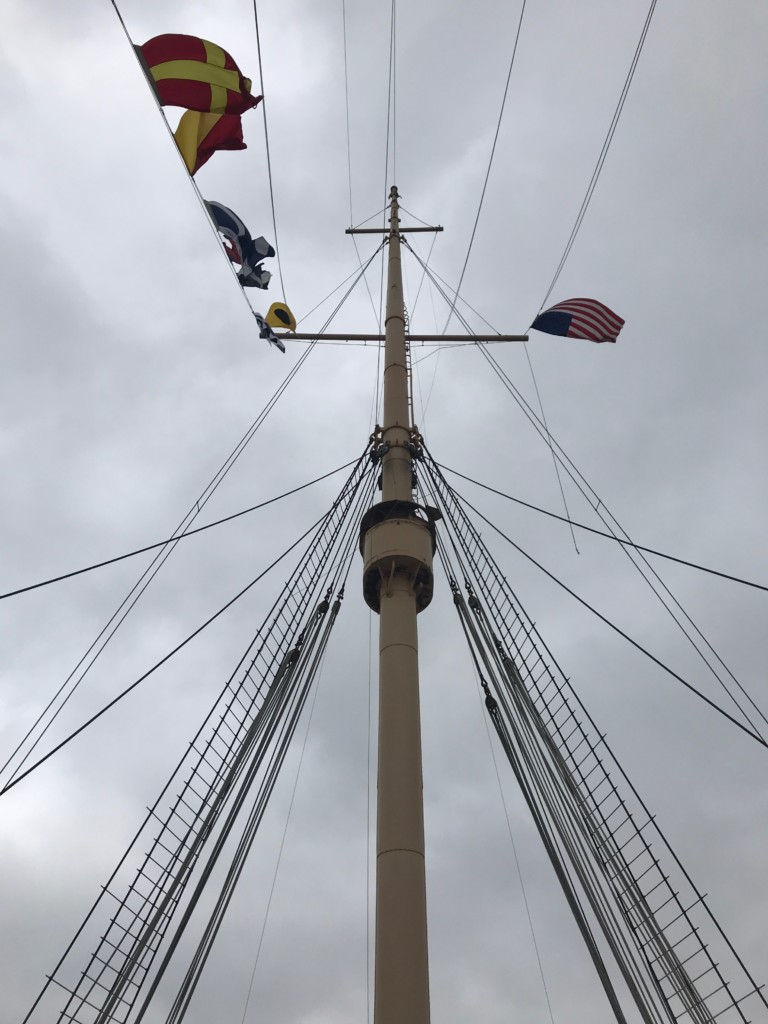
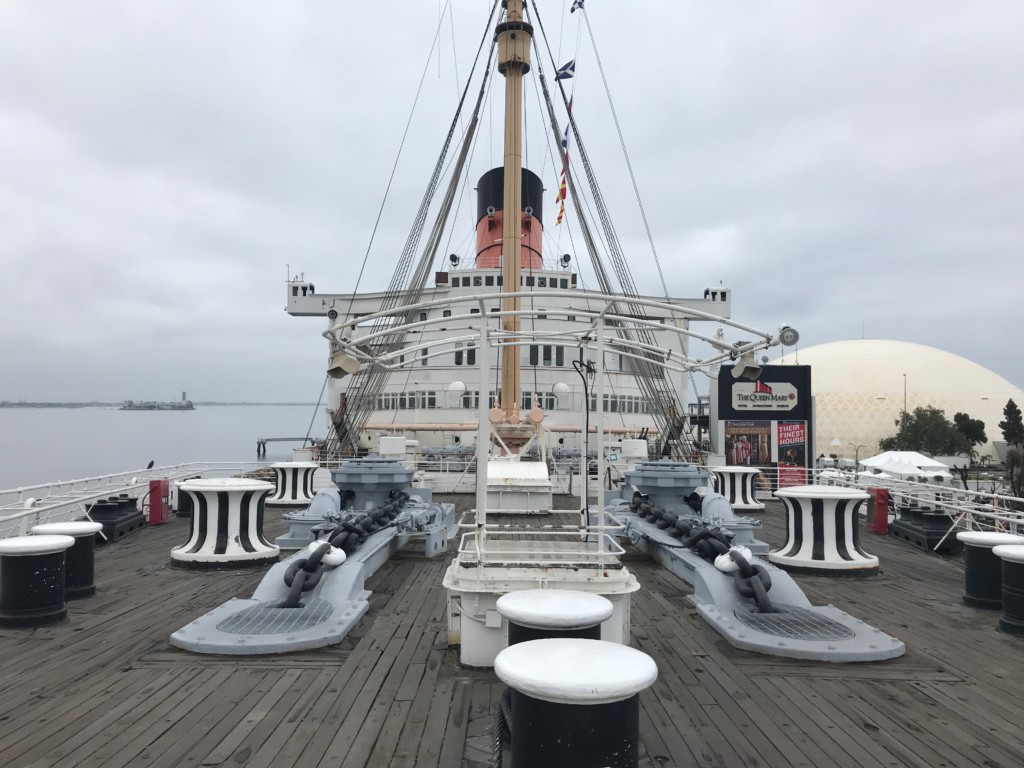
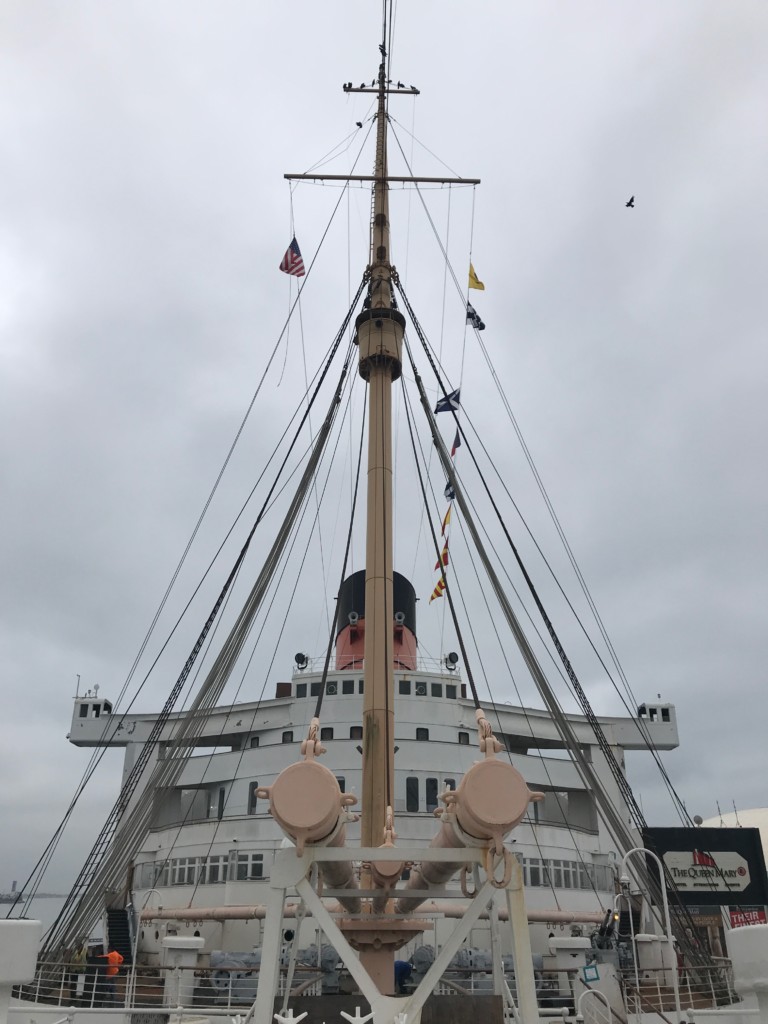
The bow proved to be an interesting area of the ship. From the huge anchor chain and its mechanics to hatches and control levers, many of the ship’s original equipment has been left here, in a somewhat disappointing state as there could have been a tad bit more attention paid to preserve it.
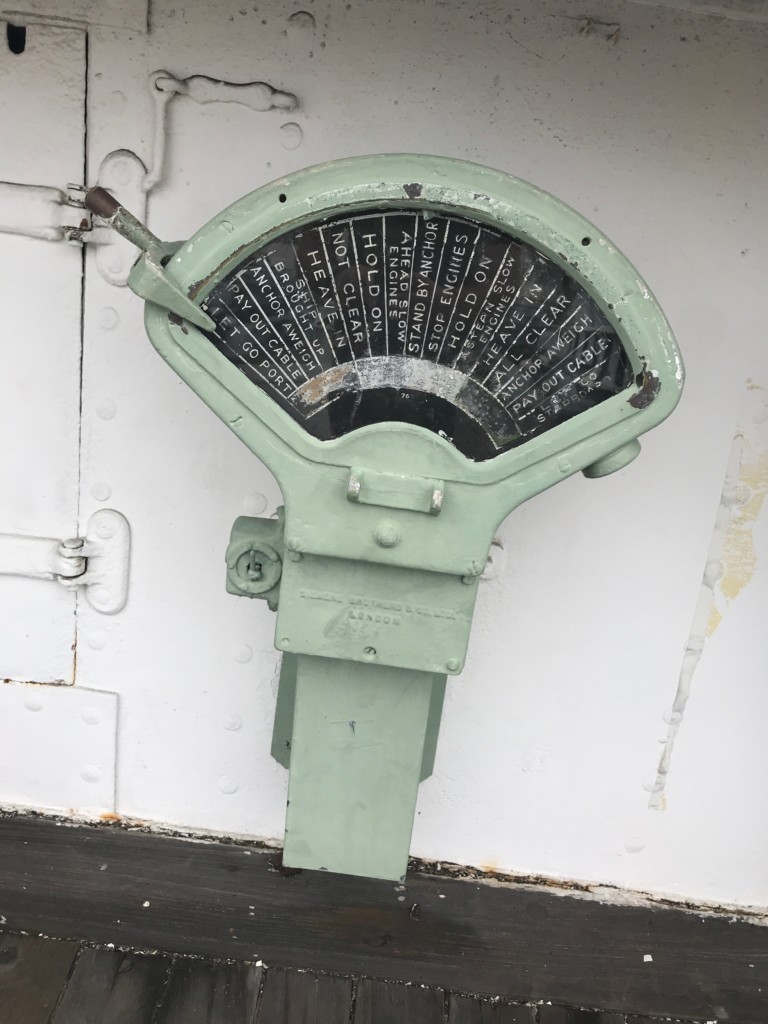
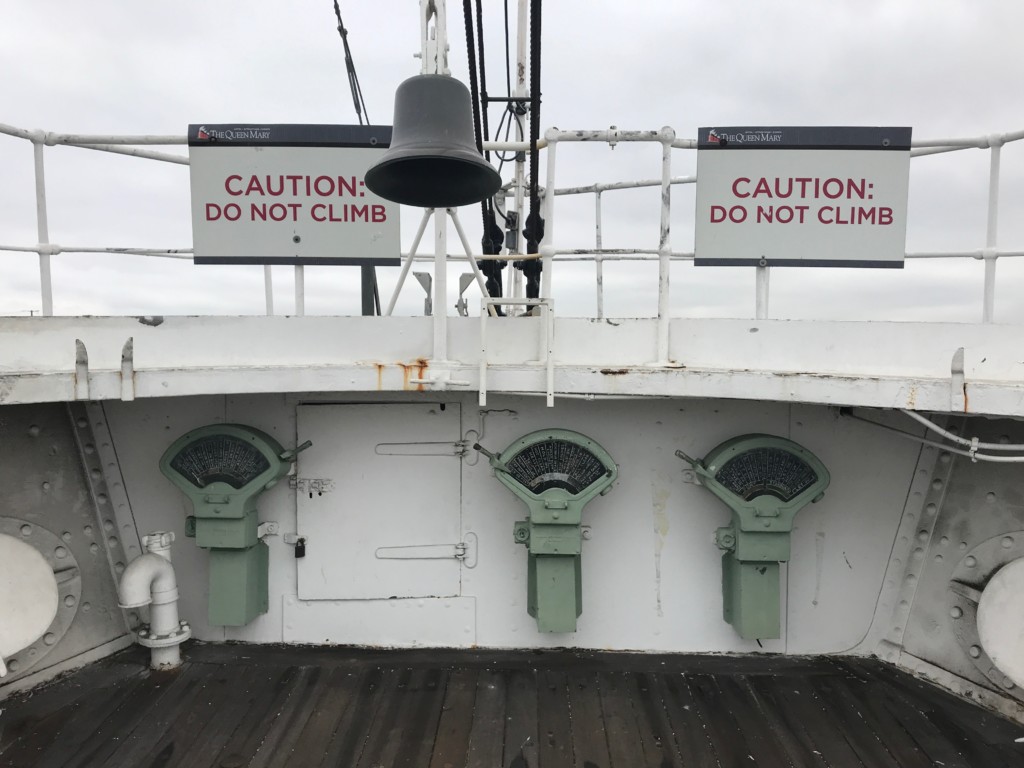
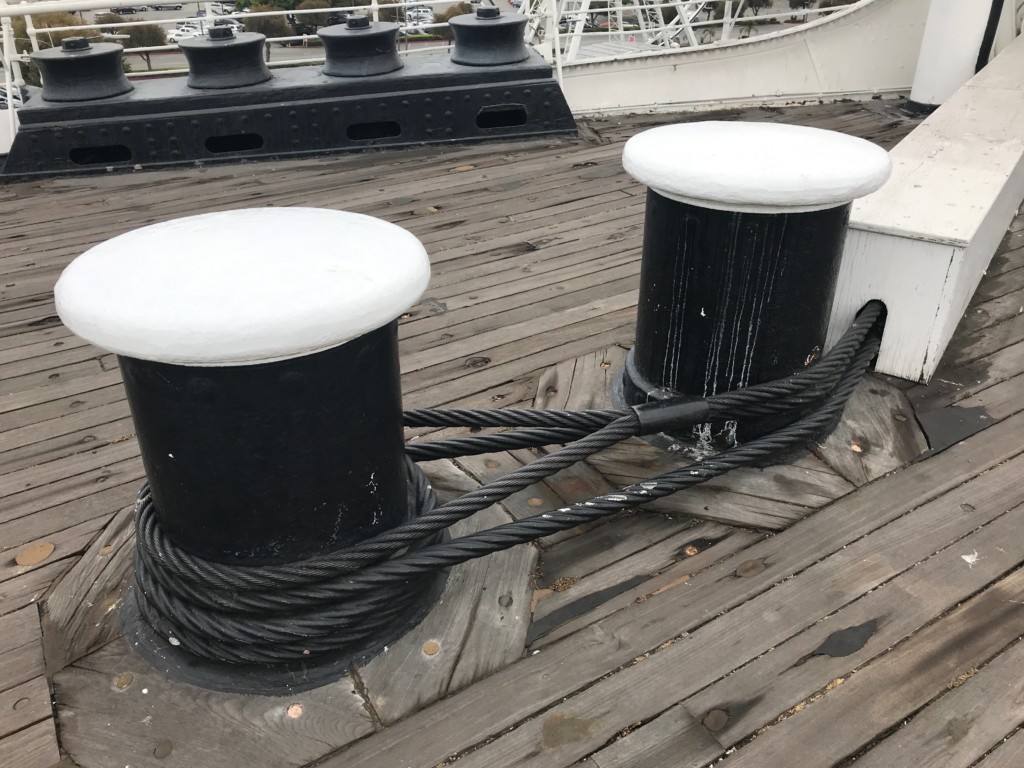
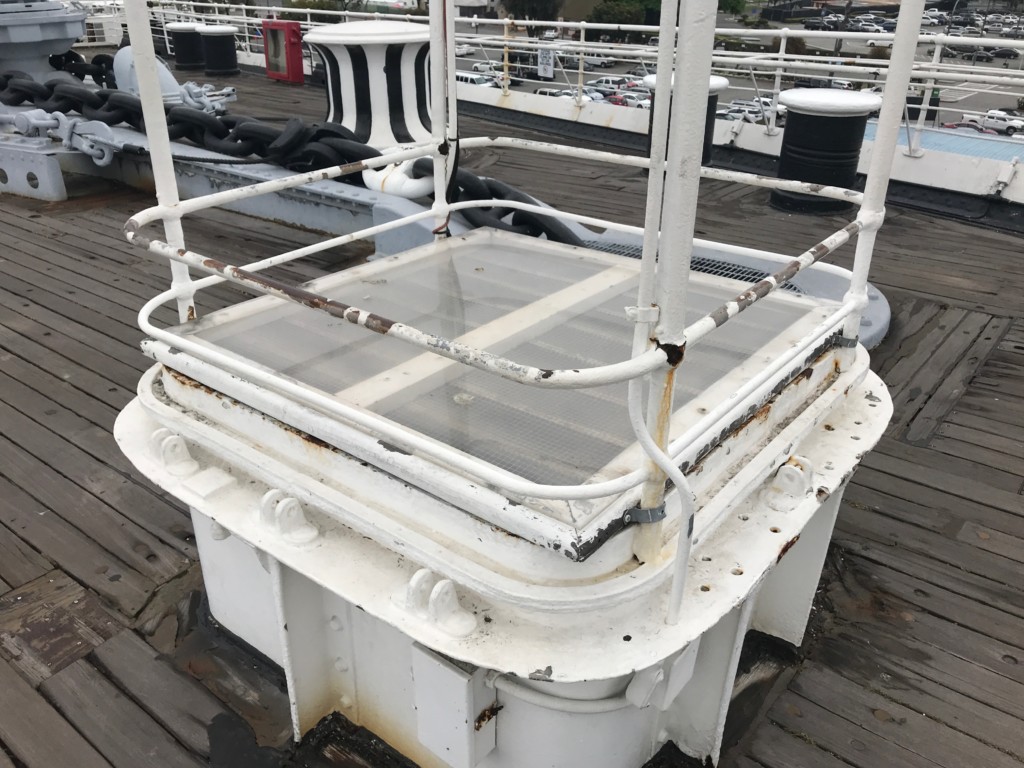
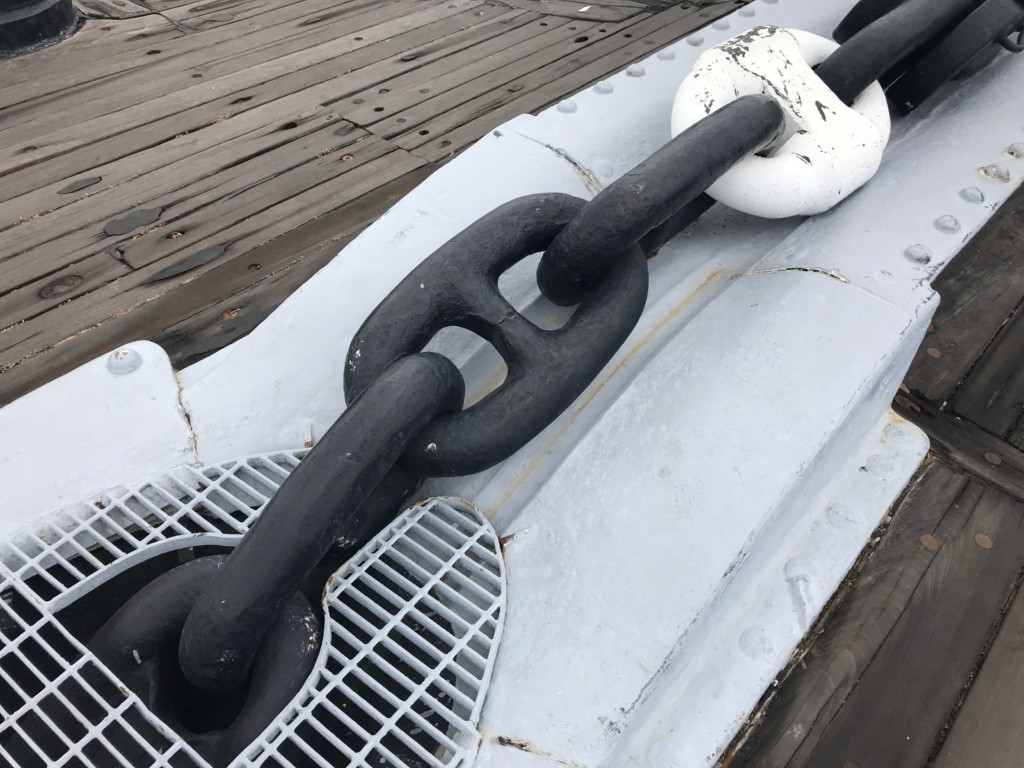
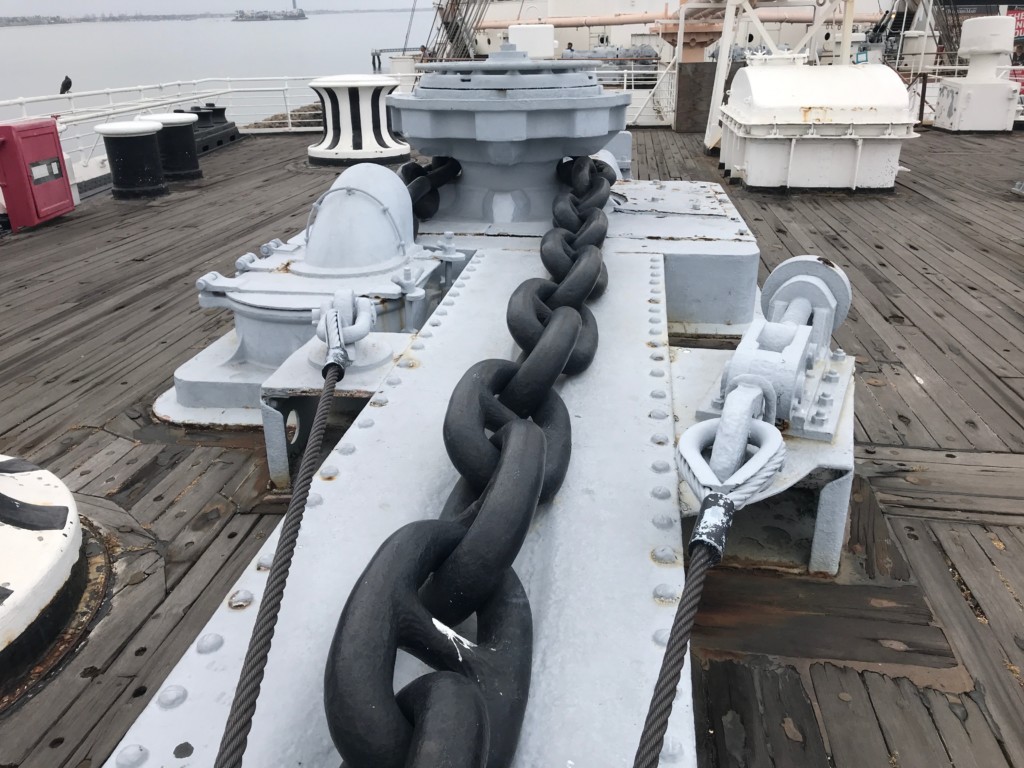
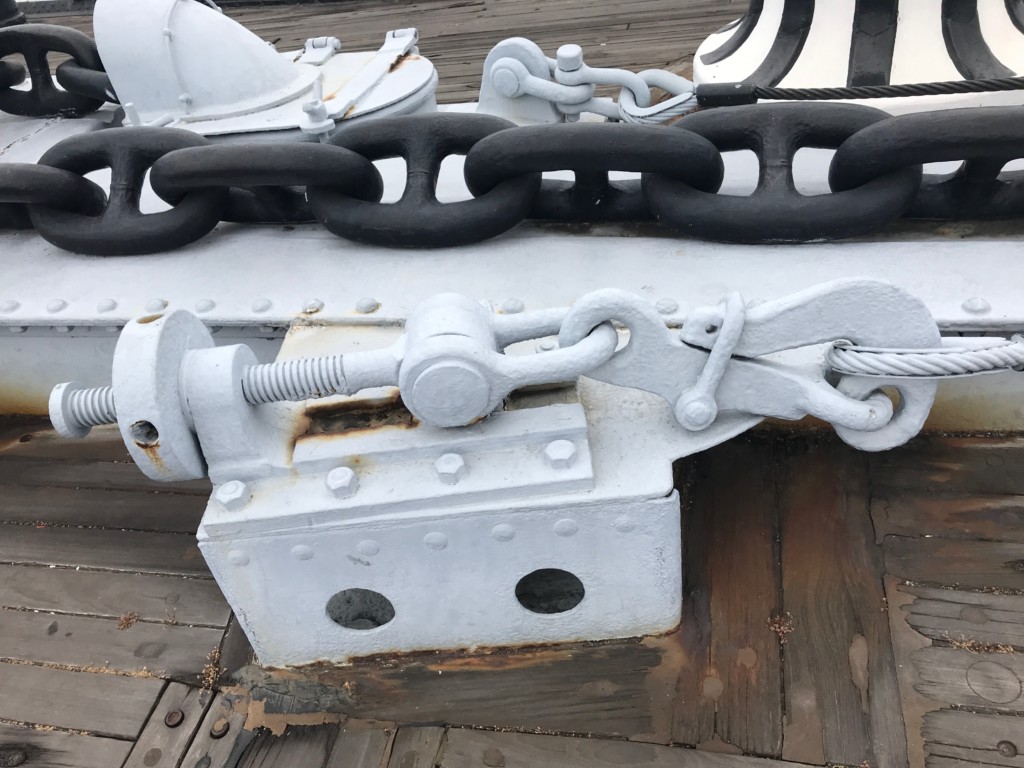
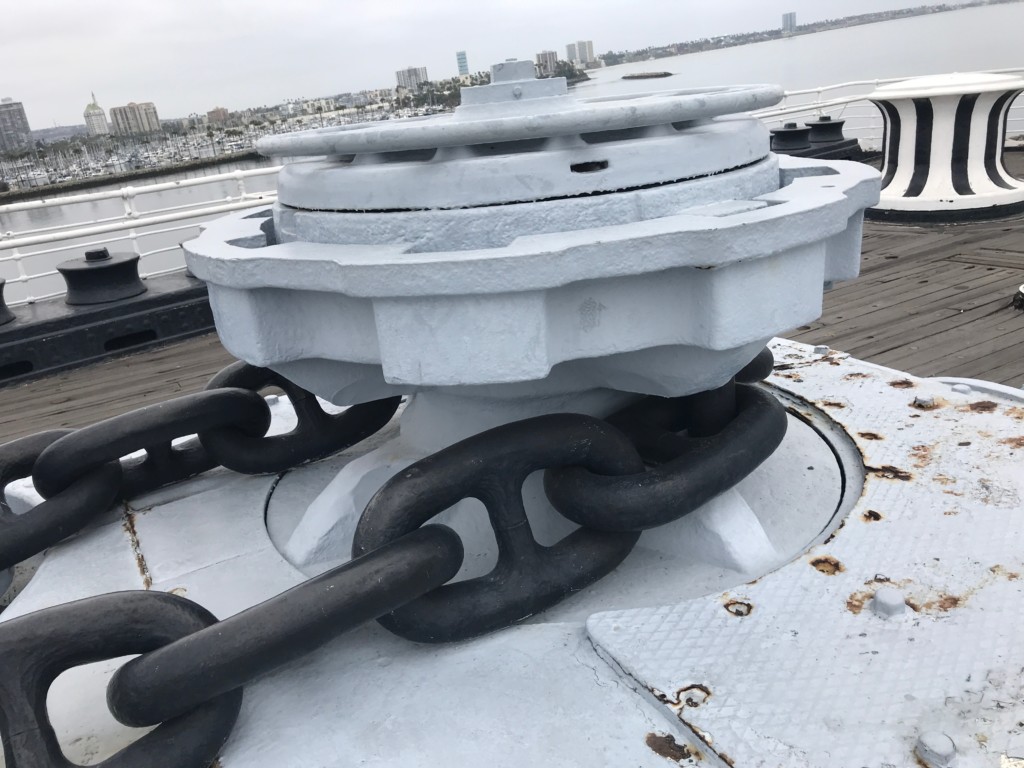
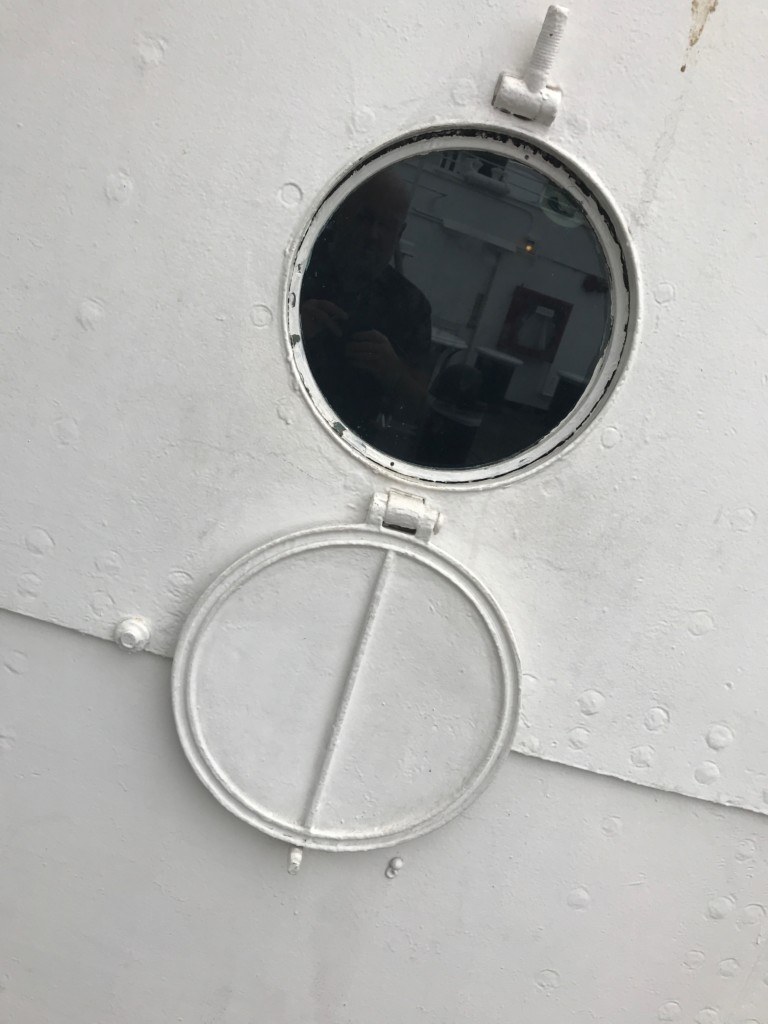
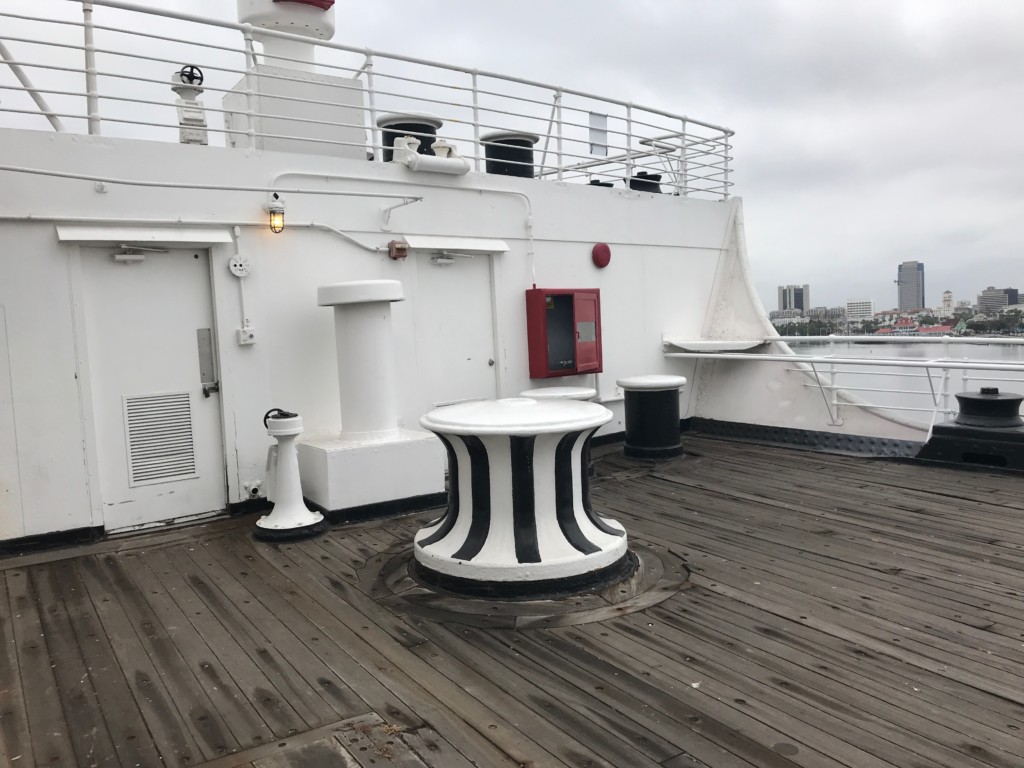
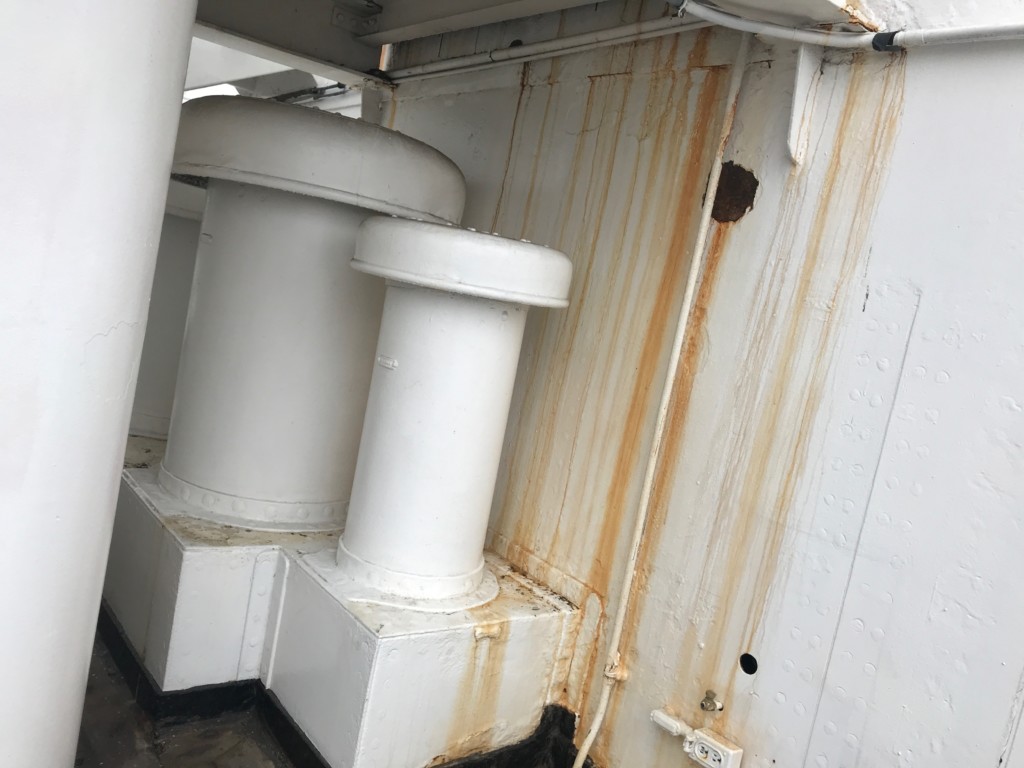
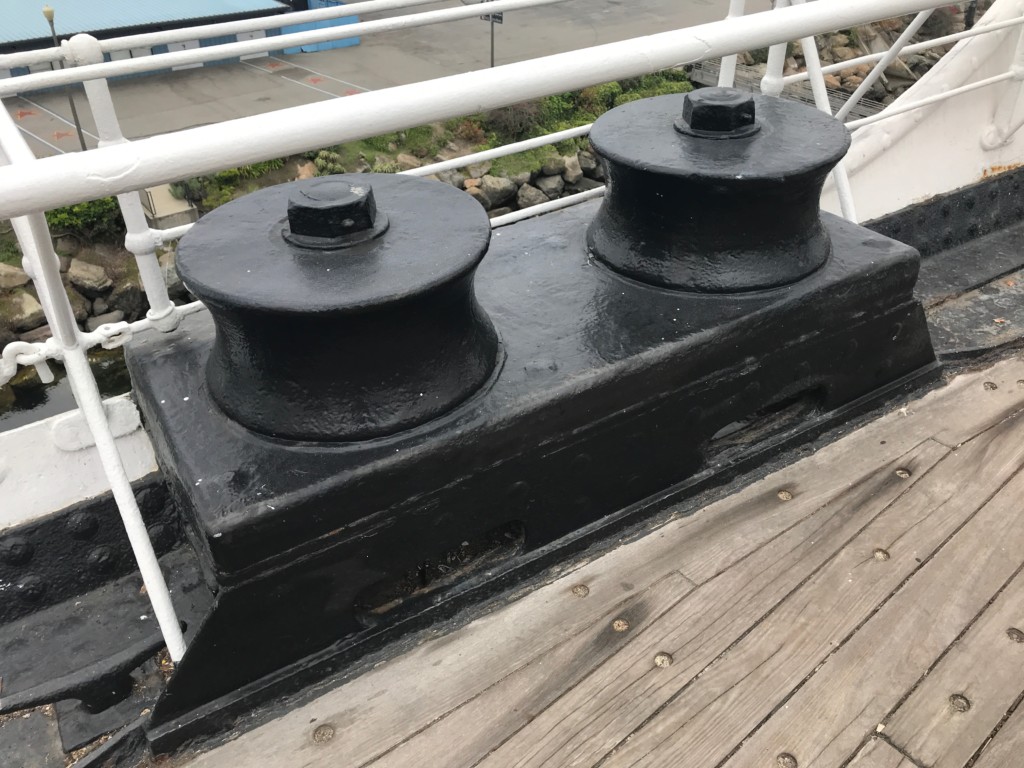
As you can see in the photos of this area, rust and rot and a lack of general maintenance have contributed to an overall look of neglect. For such a historical ship, you would think that more care would have been done in the preservation process.
From the Bow you can look up at the ship’s Bridge Wings. Normally open to the public, the Bridge was closed due to the construction going on during my visit. You can also see the ship’s builder’s plaque welded into the structure.
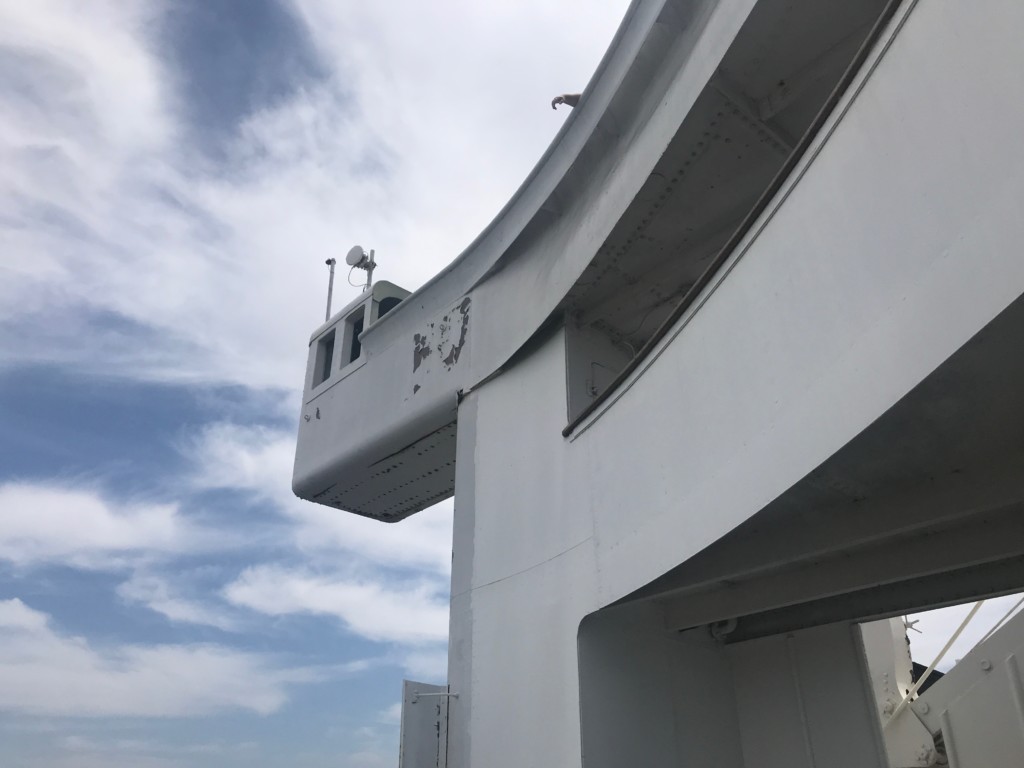
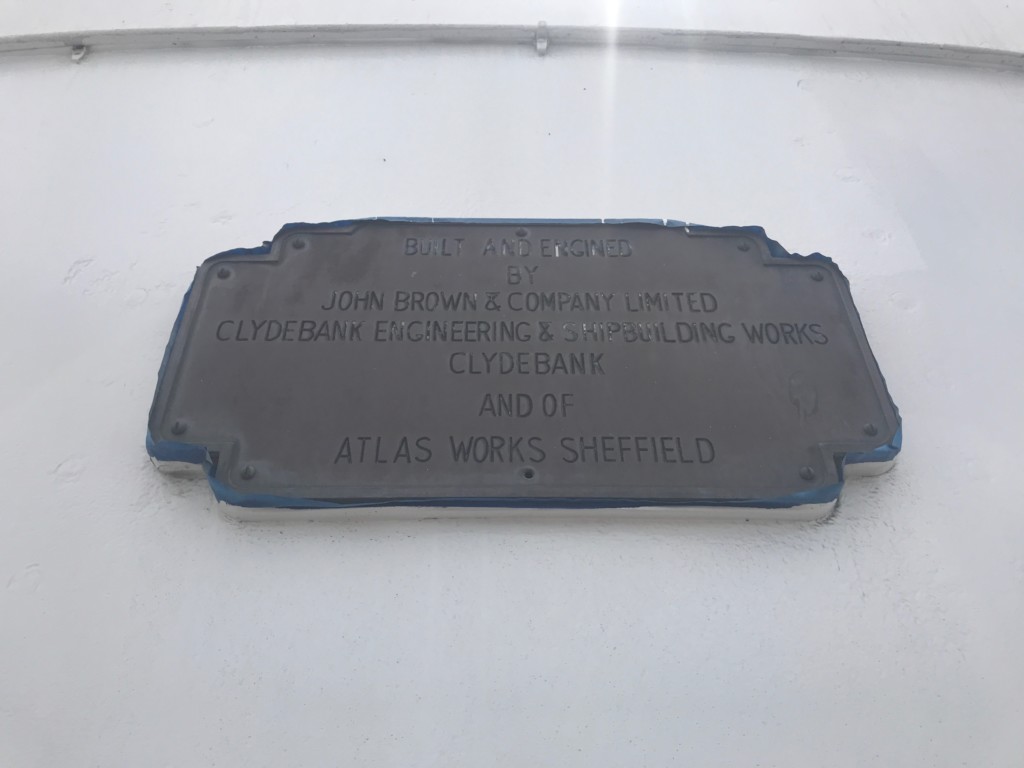
If you want to take a walk through these areas with me, check out the videos below.
In case you missed the other three installments of this report so far, you can check out the Stateroom Tour, Isolation Ward Tour and the Public Spaces Tour where more photos and videos await.
